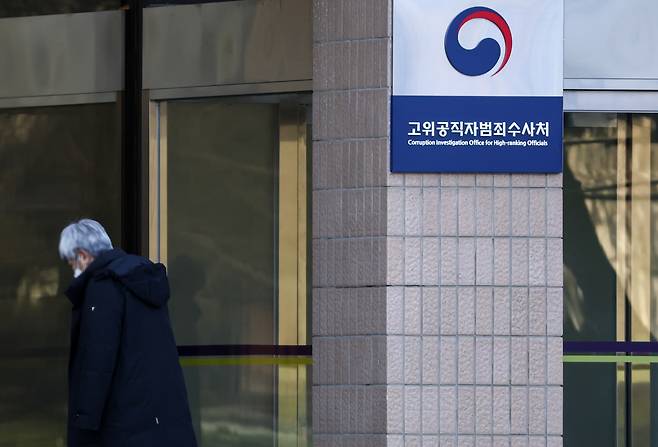Moon-established investigative office slammed over possible phone spying
전체 맥락을 이해하기 위해서는 본문 보기를 권장합니다.
The chief of the investigation office, Kim Jin-wook, who was appointed to the post by Moon, admitted to having accessed phone data of some lawmakers aduring a Dec. 30 questioning by the parliament, but denied it amounted to an "indiscriminate surveillance."
On the investigation office's spying controversy, the lawyers' group said such activities "constitute violations of the fundamental rights to privacy."
이 글자크기로 변경됩니다.
(예시) 가장 빠른 뉴스가 있고 다양한 정보, 쌍방향 소통이 숨쉬는 다음뉴스를 만나보세요. 다음뉴스는 국내외 주요이슈와 실시간 속보, 문화생활 및 다양한 분야의 뉴스를 입체적으로 전달하고 있습니다.

A progressive lawyers’ group Tuesday slammed an anti-corruption investigative agency established by President Moon Jae-in administration over alleged spying on South Koreans.
Lawyers for a Democratic Society, more widely known by the Korean acronym Minbyun, held a round-table talk with civic groups to address recent allegations of communications surveillance by the Corruption Investigation Office for High-ranking Officials and their implications on civil liberties.
The investigation office, which is less than a year old, faces growing accusations of abusing its spying abilities to gain access to phone activities of journalists, politicians and private citizens who are not suspected of wrongdoing.
Several journalists at major news organizations as well as opposition political figures -- among whom are Seoul Mayor Oh Se-hun and main conservative People Power Party presidential candidate Yoon Suk-yeol -- have claimed their communication records have been collected by the investigation office.
According to the People Power Party and news reports so far, the office is believed to have obtained logs of calls and texts of at least 332 people, including 176 journalists and 91 opposition lawmakers. The outlets whose journalists have supposedly been tracked by the office are mostly conservative-leaning.
The chief of the investigation office, Kim Jin-wook, who was appointed to the post by Moon, admitted to having accessed phone data of some lawmakers aduring a Dec. 30 questioning by the parliament, but denied it amounted to an “indiscriminate surveillance.”
On the allegations of snooping on records of journalists, who are neither suspects in a crime nor high-ranking officials, Kim said that details of ongoing investigations were confidential, and that he was not aware of the professions of people whose data have been gathered.
On the investigation office’s spying controversy, the lawyers’ group said such activities “constitute violations of the fundamental rights to privacy.”
“Seeking access to the communications of journalists, in particular, threatens the freedom of the press,” it said.
The group said the issue of monitoring of private phone conversations and online activities by law enforcement authorities and state agencies has been a recurring problem in Korea for at least the past decade, and that this was enabled by the lack of a legal framework to challenge such practice.
Bills put forth to amend the related laws on communication secrets have ended as failed attempts, in favor of efficient investigations and other national security concerns, the group said. Technically, government bodies can access these records without a court order or a warrant.
“Unless we have a legal framework in place, spying on ordinary Koreans is always going to be a possibility,” it said.
The launch of an investigative office dedicated to handling cases of misconduct by high-ranking officials, independently from the prosecution, had been one of the Moon administration’s key judicial reform objectives. The office has the authority to investigate and indict judges, prosecutors and upper-level police officers.
The bill providing basis for the office’s establishment was passed by the ruling Democratic Party of Korea-majority legislature in December 2020.
Moon had said the office was necessary to keep the country’s “powerful” prosecution, which takes credit for sending ex-presidents both left and right to jail, in check.
By Kim Arin (arin@heraldcorp.com)
By
Copyright © 코리아헤럴드. 무단전재 및 재배포 금지.